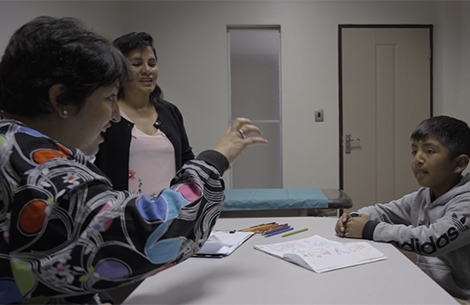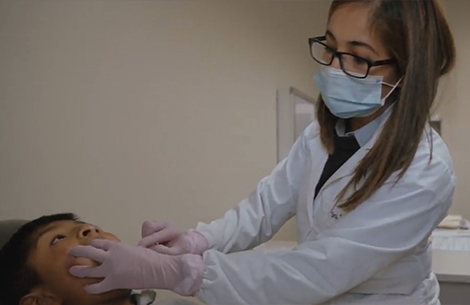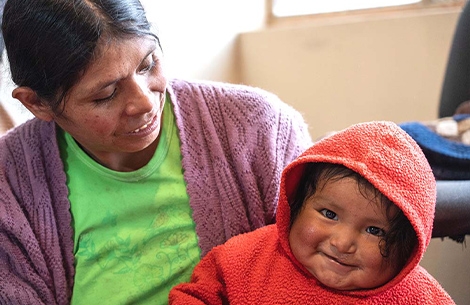Elsa Heals Clefts by Healing Families
Inside the work of a Smile Train-partner social worker
When a baby is born, new parents are born, too. That is true for everyone, but it is especially true for new parents of a baby with a cleft. Holding their newborn for the first time, dreams of first laughs, first words, first loose teeth, and first loves are dashed, replaced by the once unthinkable: Will he ever make friends or find a job? If she can’t nurse without choking… how long will she be with us?
As a psychologist at Smile Train partner Fundación Ayninakuna in Bolivia, parents of newborns with clefts regularly come to Elsa Gonzales Ramos looking like their whole world is lost. She greets them all with a warm smile and good news: “It’s going to be okay. You’ve come to the right place.”
Cleft treatment is rarely a single surgery. It’s often a decades-long journey requiring nutritional support so the baby can feed enough to be a healthy weight for surgery, then years of speech therapy, more surgeries, specialized dental and orthodontic treatments — and psychosocial care for the whole family because a child cannot thrive if their parents are in a place where they can barely care for themselves.
That’s where Elsa comes in. Rather than helping families move past or get over their feelings of anxiety, frustration, and guilt, she helps them face them. Only then can they grow from them.
“I consider my task to be very important, fundamental,” she said. “I can motivate [parents] to continue to persist, to fight their own fears, so that [their] children develop in the best possible way.”
Along the way, she helps them understand the schedule of holistic care their baby will need over the years, empowering them to be partners in care.
In helping families develop bonds with one another, she finds herself forever joined to their journey. Another family member fully invested in doing whatever it takes for her child to succeed.
Read more stories for Cleft Awareness Month

Ingrid Rios Makes Cleft Care Fun
She learned it all from her daughter

Dr. Telma Carnicer Sets Teeth — and Misconceptions — Straight
It takes so much more than a surgery to heal a cleft

Setting the Standard for Cleft Treatment in Bolivia and Beyond
At Fundación Ayninakuna, doctors and staff are committed to patients and families for the long haul.
In 25 years, Smile Train has sponsored two million cleft surgeries — more than every other charity combined. Our extraordinary success owes to the kindness of our donors as much as to the small interactions partners like Elsa have with families in need every day.
Instead of flying foreign doctors into — then out of — places in need like other cleft charities, Smile Train believes in investing in the skills and passions of health workers like Elsa and her team, local professionals who speak their patients’ languages, share their culture, and who they can trust will still be there for them tomorrow, next month, and for generations to come.
For families with little experience of institutionalized healthcare, that level of trust isn’t just nice to have; it is part of the healing process itself.
“What I like most about the relationship with each family and child is to collect a smile from a child,” said Elsa. “For me, it is a joy to reach that connection, to reach that bond…. The important thing is that parents believe in their children. If they are the first to believe in them, then society will believe in them and have hope for every child with a cleft. It’s not an impediment stopping them from achieving what they want in life.”
Show children and families in need that you, too, believe in them by making a donation to Smile Train today.
